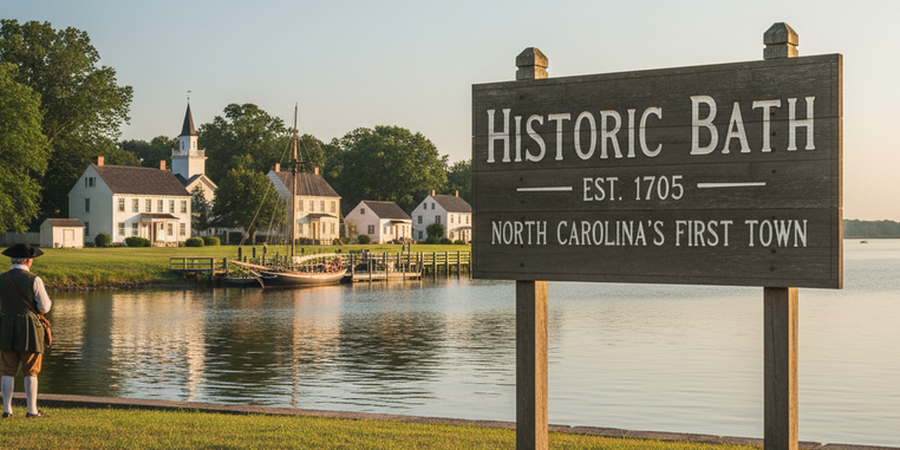NORTH CAROLINA - A state steeped in early American history, holds a fascinating place in the story of European colonization in the United States. Often overshadowed by the "Lost Colony" of Roanoke, the quest for the oldest permanent European settlement in the state leads us to a specific, resilient community. Understanding this history not only highlights the challenges faced by early settlers but also the enduring legacy of perseverance that shaped the Tar Heel State.
Unearthing North Carolina's Roots: What's the Oldest Permanent European Settlement?
Before discussing permanence, it's crucial to acknowledge the earlier, ultimately unsuccessful, attempts at English settlement in North Carolina. The most famous, of course, is the Roanoke Colony.
Roanoke Island (1585-1587): Sponsored by Sir Walter Raleigh, several attempts were made to establish a colony on Roanoke Island. The first expedition in 1585, led by Ralph Lane, was ultimately abandoned. The second, in 1587, led by John White, saw the birth of Virginia Dare, the first English child born in the Americas. However, when White returned from a supply trip to England, the colonists had vanished, leaving behind only the mysterious word "CROATOAN" carved into a post. The fate of the "Lost Colony" remains one of America's enduring historical mysteries.
Significance: While a pivotal part of early American history, Roanoke was not a permanent settlement. It served as a stark lesson in the difficulties of colonization.
Bath: North Carolina's First Permanent Town
The distinction of being North Carolina's oldest permanent European settlement belongs to Bath.
- Founding (1705): Settled in 1705, Bath was officially recognized as the first incorporated town in North Carolina. It was strategically located on the Pamlico River, providing access to the fertile lands of the Albemarle and Pamlico Sounds, and served as an important port.
- Early Development: The town quickly became a center for trade and government in the burgeoning colony. It attracted a diverse group of settlers, including merchants, farmers, and even some notorious figures of the era.
- Challenges and Growth: Bath faced numerous challenges in its early years, including conflicts with Native American tribes (such as the Tuscarora War), outbreaks of disease, and even visits from pirates like Blackbeard, who was known to frequent the town. Despite these difficulties, Bath persevered and laid the groundwork for future development in North Carolina.
- Legacy: Today, Bath remains a small, historic town, carefully preserving its 18th-century architecture and offering visitors a glimpse into North Carolina's colonial past. Historic Bath State Historic Site showcases the town's early structures and stories.
Why Bath Achieved Permanence
Several factors contributed to Bath's success, where Roanoke failed:
- Timing: Bath was established at a later date when English colonial efforts were more organized and settlers had a better understanding of the challenges of the New World.
- Location: Its sheltered position on the Pamlico River provided a more secure harbor than Roanoke and better access to internal trade routes.
- Gradual Growth: Rather than a single, large-scale expedition, Bath grew more organically, with settlers gradually establishing farms and infrastructure.
- Support Systems: Over time, more robust colonial support systems were established, including improved communication with established colonies to the north.
While the enigmatic "Lost Colony" of Roanoke holds a legendary place in North Carolina's narrative, it was Bath, established in 1705, that earned the title of the state's first permanent European settlement. Its story is one of resilience, growth amidst hardship, and a testament to the enduring spirit of the early colonists who laid the foundation for the North Carolina we know today. A visit to Historic Bath offers a tangible connection to this pivotal chapter in American history.
What's The Oldest Permanent Settlement in Nouth Carolina?
Typography
- Smaller Small Medium Big Bigger
- Default Helvetica Segoe Georgia Times
- Reading Mode


 While the enigmatic "Lost Colony" of Roanoke holds a legendary place in North Carolina's narrative, it was Bath, established in 1705, that earned the title of the state's first permanent European settlement. Its story is one of resilience, growth amidst hardship, and a testament to the enduring spirit of the early colonists who laid the foundation for the North Carolina we know today. A visit to Historic Bath offers a tangible connection to this pivotal chapter in American history.
While the enigmatic "Lost Colony" of Roanoke holds a legendary place in North Carolina's narrative, it was Bath, established in 1705, that earned the title of the state's first permanent European settlement. Its story is one of resilience, growth amidst hardship, and a testament to the enduring spirit of the early colonists who laid the foundation for the North Carolina we know today. A visit to Historic Bath offers a tangible connection to this pivotal chapter in American history.